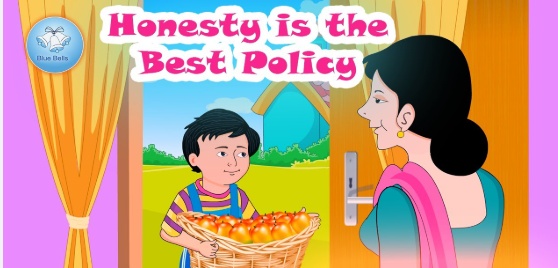Introduction
In the fabric of human character, honesty is a golden thread that holds everything together. For teens, students, or even adults navigating the complex maze of life, honesty isn’t just a moral principle—it’s a bridge to trust, relationships, and lasting success. This emotionally engaging story will help you reflect on how a single dishonest act can ripple through one’s life and why the value of honesty cannot be overstated.
🎬 Opening Hook:
"One lie… that’s all it took to break everything."
📖 The Story (The Boy Who Learned the Hard Way)
There once was a boy named Arjun who was known to be cheerful, friendly, and playful. But he had a habit—a tiny crack in his otherwise lovable character: he told lies. Nothing too big at first. A skipped homework here, a forgotten chore there.
One Monday morning, Arjun hadn’t completed his math assignment. Nervously, he told his teacher, “Ma’am, my little brother tore up my homework.”
His teacher, kind and understanding, smiled. “It happens. Just be more careful next time.”
But the next week, it was the same excuse. And again the week after. The lie became his easy way out. What began as a small excuse soon became a pattern.
Then came the science project submission day. This time, Arjun had stayed up late and worked hard on his project. But when he arrived at school, he realized he had forgotten it at home.
He told the truth.
“I did my project, ma’am, I swear. I just forgot it.”
But the class laughed. The teacher sighed.
“Arjun, you’ve lied so many times. Why would anyone believe you now?”
Arjun’s eyes welled up. “But this time, I’m not lying!”
His teacher knelt down beside him and gently said, “Trust is like a paper. Once crumpled, it can’t be perfect again.”
That moment broke Arjun. He went home and told his parents everything. With their help, he wrote apology letters to his teacher and classmates and vowed never to lie again.
💡 Moral:
"Honesty builds trust. Lies build regret."
Trust, once broken, is hard to rebuild. Arjun learned it the hard way. But he also learned that with humility and effort, it’s never too late to start over.
🎯 Quote to Remember:
"Trust is earned in drops and lost in buckets." — Kevin Plank
Deep Dive: Why Honesty Matters
Honesty in Personal Life
Builds strong relationships
Fosters open communication
Reduces guilt and anxiety
Honesty in Professional Life
Helps build your reputation
Develops leadership credibility
Promotes ethical work culture
Emotional Impact of Dishonesty
| Emotion | Before Lying | After Lying |
|---|---|---|
| Confidence | High | Low |
| Trust from Others | Strong | Broken |
| Self-respect | Maintained | Lost |
| Stress | Minimal | High |
Infographics & Flowcharts
📊 Table: Consequences of Lying vs. Benefits of Honesty
| Action | Immediate Result | Long-term Effect |
| Lying | Escape momentarily | Damaged reputation |
| Telling truth | May face trouble | Builds long-term trust |
🔁 Flowchart: Trust Building Through Honesty
START
↓
Tell the Truth → Face Reality → Earn Respect → Build Trust → Stronger Bonds → Personal GrowthFAQs
1. What is the moral of the story 'The Boy Who Learned the Hard Way'?
The story teaches that honesty is essential to build and maintain trust. One lie can destroy years of trust.
2. Why is honesty important for students?
It teaches responsibility, helps build character, and ensures genuine growth and learning.
3. Can trust be rebuilt after it's broken?
Yes, but it takes time, consistency, and genuine efforts of honesty and humility.
4. What are the emotional consequences of lying?
Guilt, anxiety, fear of exposure, and loss of self-respect.
5. How can parents teach honesty to their children?
Through role modeling, open communication, rewarding honesty, and explaining the consequences of lying.





.png)

Thank you for sharing such an informative blog. Abm Cleaning Services in Abu Dhabi If you're looking for high-quality cleaning to keep your building spotless, Contact us today!
ReplyDelete